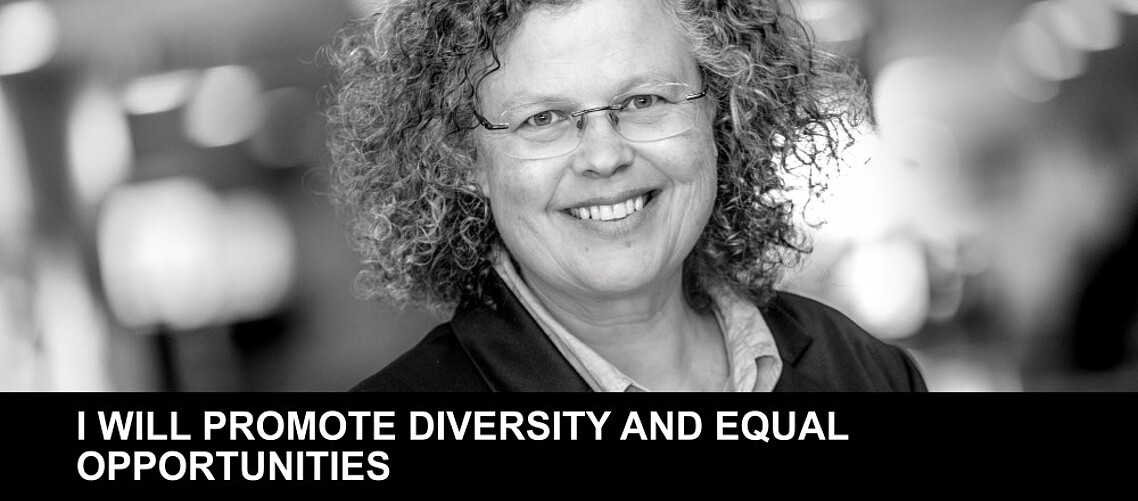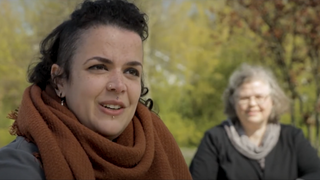What does International Women’s day, and its theme Women in leadership: Achieving an equal future in a COVID-19 world, mean to you?
The pandemic has shown that, particularly in times of crisis, even developed societies tend to revert to traditional gender roles: In heterosexual partnerships where both partners work, more often than not the woman is responsible for the majority of domestic chores. Sadly, the number of victims of domestic violence (usually women and children) has also grown during the pandemic. This is not only a problem in low-income families. Furthermore, in times of economic downturn, it’s often women who are being laid off before men, as men are still assumed to be the primary bread winners. Creating an equal future doesn’t mean returning to normal but creating targeted actions to improve gender equality in national recovery and resilience plans.
Do you have an RSM “I WILL” statement? If so, please tell us what it is and why you chose this statement.
I WILL promote diversity and equal opportunities.
Being not only a woman and expat, but also queer, fat, and vegan, I am very sensitive to social justice and inclusion. Our student body, from bachelor to PhD student, has become increasingly diverse in terms of gender and ethnicity. Senior leadership, tenured faculty, and professional support directors, however, are still predominantly white Dutch male, while support staff is mostly white Dutch female.
In my own team, I have been committed to fostering diversity and inclusion: Of the currently 11 employees working in MSc Programme Management, seven have international roots, three team members are people of colour, three are vegetarian/ vegan, two are male, two are gender-queer, and two have disabilities.
Creating equal opportunities doesn’t, however, stop at hiring diverse people: it is also necessary to create conditions under which each employee can thrive, and that can be very different for different people. One team member is currently working from his mother’s home in Taiwan, as he feels more comfortable there during the pandemic, since case numbers are low and there is more personal freedom. For the two team members with disabilities, it’s important to remain flexible in terms of work hours, in case they don’t feel well, so their jobs were designed in a way that allows them to have a great deal of freedom in when they work and how much in a given day. When we get together for socials, we make sure that dietary preferences as well as accessibility are warranted.
Another important area is career mobility: I am strongly committed to supporting my team members if and when they have ambitions to develop into another role. In the past four years, four of my team members have made upward career moves within RSM EUR.
Of course, it’s always a disruption if someone moves on, and finding and onboarding a suitable replacement creates a lot of extra work. The team members I hire are highly qualified, motivated, and ambitious, so it’s only natural that after a couple of years, they are ready for the next career move. I’d rather keep them within the school/university than make them leave altogether, which is why I am happy to support team members if they have set their eye on a new role.
Which women are you inspired by – either in your immediate network or globally?
Oh my, so many. One of the most inspirational women at the school is definitely my friend Professor Dianne Bevelander, who has almost literally been moving mountains for women, both in her previous roles as Associate Dean of the MBA programmes and as teacher and Director of ECWO, which was founded on her initiative and against quite some initial resistance.
Outside of RSM, there is essayist Aubrey Gordon, who has been publishing brilliant essays under the pseudonym Your Fat Friend, fighting against “the relentless bias that follows fat people nearly everywhere”, and recently published her first book. Rotterdam fellow-vegan and friend Jolanda Paardekam, also EUR alumna, was diagnosed with a spinal tumor at the age of 11. The operation was complicated, and while the tumor was removed, she has been quadriplegic since then. Jolanda couldn’t continue with her favorite sports, horseback riding, handball, and swimming, so she started training for table tennis and made it all the way to the Paralympics for five consecutive seasons between 1988 and 2004, with a gold medal in 1992 in Barcelona. Now, a Rotterdam table tennis tournament for handicapped children is named after her: The Jolanda Paardekam Classic.
All three of the women above have been pioneers in their field and have made the world a better place for many disadvantaged people.
What advice would you give women at RSM who want to become leaders?
Working at a business school that is firmly invested in goal setting, I’m going out on a limb here: I believe long-term goal setting is overrated. Life often gets in the way of goals, and, as they say, “the only constant thing is change”.
Work environments and opportunities are developing at a breathtaking pace. The median time for people to stay in the same job in the meantime is less than four years and, in the Netherlands, two-thirds of employees above 25 even move into different functional areas and/or industries by the age of 45.
In my experience, more important than setting goals is fostering good relationships, making yourself visible within and outside your own organisation, keeping up with new trends and technologies, developing your leadership skills, monitoring the market, and being ready to grab opportunities when they present themselves. Also, don’t be afraid to take a step down on the career ladder, if it helps you gain experience in areas that attract you or can later be beneficial for you.
My CV is a patchwork, and yet, I wouldn’t want to miss any of the experiences I made, as they all contributed to who and where I am today. Follow your heart, go with the flow, and be prepared.
What are the "women's themes" that still need greater awareness in your opinion?
When it comes to women’s careers, the subject that always pops up first is how to combine family life with a career. Heterosexual motherhood is still central to feminine identity. Childless women, but also women who live in same-sex partnerships are often overlooked. Next to the social pressure that is ever present in a society where traditional family life is still widely accepted as the gold standard, women without children are frequently expected to stand in when the child of a colleague is sick or when everyone else is going on summer holiday, because we are supposed to be “flexible”. Yes, it’s tough to have a career while raising children, but that doesn’t mean that women with less traditional personal lives don’t have their personal struggles as well. If we want to increase diversity in the workplace on all levels (which we most certainly should), we need to put aside our assumptions and make sure that everyone feels welcome and has equal opportunities. In short: We need to foster true inclusiveness.

